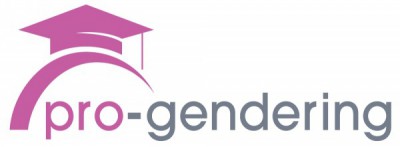PRO-GENDERING- Promoting gender mainstreaming in academia through the enhancement of gender equality and inclusion in higher education
Gender equality is grounded upon all human beings’ entitlement to ‘equality in’ rights, freedoms and opportunities and asserts that, as human beings, women in all their diversity (as well as the LGBTQI+ community) have the same entitlement to freely realise their human capabilities (Nussbaum, 2000). This condition today is not attained in the European Research Area and in the HED Sector in general. According to the 2021 She Figures report, only a third of researchers in the EU were women in 2018 and their working conditions were inferior (more flexibility and less salary) (European Commission, 2022). Women are still under-represented in university governing bodies, in the representation of universities, and at various levels of university decision-making. Traditionally, areas of knowledge and fields of research with a majority presence of women have not been accorded the same recognition as others, and fields focusing on gender issues have remained outside the circle of academic recognition altogether. This lack of visibility of gender issues has also occurred in curricula and educational content. The progress to encourage gender mainstreaming in science and research policy is still considered inadequate. Higher Education Institutions have drafted Gender Equality Plans, which constitute an effective tool for initiating change and addressing various manifestations of gender inequality. GEPs can make harmful practices visible and shift organisational cultures, raise awareness on the topic and motivate the different target groups of the Academic Community to engage and take initiatives to promote gender equality. Although most Universities have already drafted a GEP, the need to move from a “tick the box” approach to the utilisation of the potential of such a dynamic document is paramount. The risk of having GEPs that are inactive and remain without real content, without resources allocated and without the engagement of the stakeholders of the Academic Community is imminent. PRO-GENDERING seeks to address those concerns and enhance the capacity of the HED sector to implement and monitor/evaluate GEPs. Students will have an important role from the beginning of the project, leading not only to the improvement of their self-awareness on the topic but also to an Academic community which is more inclusive, diverse and embraces change from below. The project intends to facilitate structural and cultural change at HEIs around gender equality.
The project is expected to increase the capacity of partner institutions to revise their GEPs. New knowledge on the topic will be created and exchanged at EU level. Policymakers will enhance their evidence-based policy-making. Students will be empowered to implement small-scale projects and become allies in the implementation of GEPs in their Universities. They will increase their sense of responsibility towards ensuring that Universities implement the GEPs and keep them accountable for any shortcomings.
Duration:
01/09/2023- 31/08/2026
More information about project:
International Cooperation and Projects Department (e-mail: international.projects@san.edu.pl)










